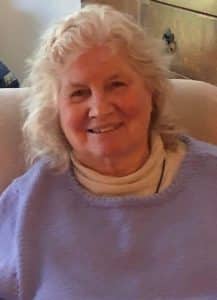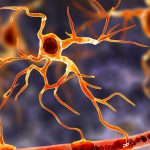In memory of Judith – a brave woman
Judith Webb was a much-loved primary school teacher, volunteer, wife and mother. Her husband Bob says she was an “outgoing redhead with a terrific smile” who always put others before herself.
“She loved helping people. When we lived in Canberra, she ran a popular church kids club, organised a drop-in centre and food parcels for needy people, and was a visitor at local aged care homes. When we were in London, she cooked Christmas dinner for homeless people,” recalled Bob.
Judith and Bob first met at a youth hostel in Wales in 1966. They talked and laughed as they washed dishes in the communal kitchen. A year later, they married in London.
Bob, who grew up on the south coast of England, was happy to follow Judith back to Sydney, where she returned to teaching and community volunteering, and he pursued a PhD in astrophysics.
Bob went on to have a distinguished career in the private and public sectors, retiring to part-time sustainability research at the Australian National University, Canberra.
The couple, who had two children, lived in Sydney, Adelaide, Canberra and London during their 54 years together. As they entered their 60s, Bob and Judith looked forward to retirement.
But in 2007, Judith started having unexpected falls. She undertook several tests, but it wasn’t until two years later the family learned that Judith, 66, had late-onset primary progressive multiple sclerosis (PPMS), a relatively unusual form of the disease.
“As a teacher, Judith encouraged students to do the MS Walkathons and Readathons to support people with multiple sclerosis (MS). Otherwise, we knew little about the disease. There was no family history, and we didn’t know anyone else who had it,” said Bob.

Judith Webb
The couple turned to Gloria McKerrow House, an MS support centre in Canberra, for assistance. Staff provided practical tips on managing the condition, and Judith also attended exercise classes tailored to MS patients.
But within a few years, she lost all mobility in her legs, the normal use of her arms and hands, and her eyesight deteriorated.
“There were no available treatments for PPMS then. Judith was brave and didn’t complain. But she found it hard that she became the one who had to be cared for instead of helping others,” said Bob.
Despite a valiant 10-year fight, Judith died in 2020 from an MS-related infection.
Motivated by a desire that others not be faced with the same experience, and as a tribute to Judith’s generosity and courage, Bob decided to allocate a portion of his Will to MS Plus for research.
“After providing for our kids, Judith and I decided we would give money to overseas humanitarian causes, and to support MS Plus with the funding of MS research.”
Their daughter Kate supports their charitable intentions, and Bob believes their son Andrew, who sadly passed away in 2016, would have liked the plan too.
Today, Bob keeps abreast of international PPMS research developments, including those undertaken by MS Australia. Recently, the first-ever treatment for PPMS was TGA approved.
“It came too late to help Judith, but it should give hope to others,” he said.
“I hope further research will improve MS treatments and maybe even reverse this mean disease. That’s why part of my Will is going to MS Plus for research — to remember a brave and loving woman and the people she would have wanted to help.”
To learn how to support people with MS through a gift in your Will, contact Laura or Rebecca on 1800 443 867, email futureplanning@ms.org.au, or visit My MS Legacy.




